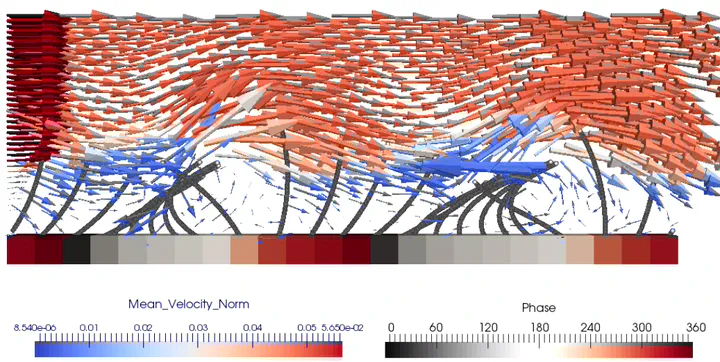Emergence of metachronal waves in cilia arrays: a hydrodynamic mechanism.
Aug 21, 2016·,,,,,·
0 min read
Sylvain Chateau
Jean Mercat
Zhe Li
Sebastien Poncet
Julien Favier
Umberto D'Ortona
 Representation of the velocity field in the mucus and water layers caused by the beating cilia in metachronal synchronisation.
Representation of the velocity field in the mucus and water layers caused by the beating cilia in metachronal synchronisation.Abstract
This work reports the emergence of metachronal waves in cilia arrays immersed in a two-fluid environment using a coupled lattice Boltzmann - Immersed Boundary method. The periciliary layer (PCL) is confined between the wall and the mucus layer. Its depth is chosen in such a way that the tips of the cilia can penetrate the mucus layer. The cilia are initially set in a random state but quickly synchronize with their immediate neighbors with a phase shift giving birth to sympleptic or antipleptic metachronal waves, depending on the strength of the fluid retroaction onto the cilia. Antiplectic waves are found to be the most efficient to transport mucus compared to other random or synchronised cilia motions.
Publication
In International Congress of Theoretical and Applied Mechanics